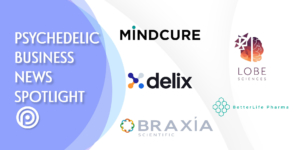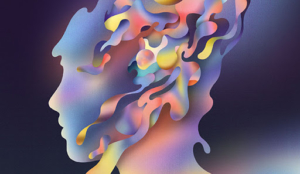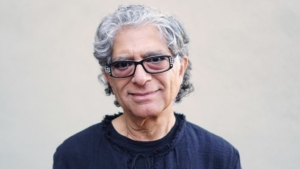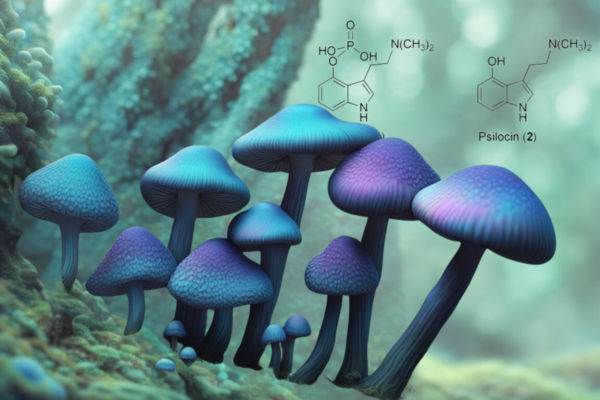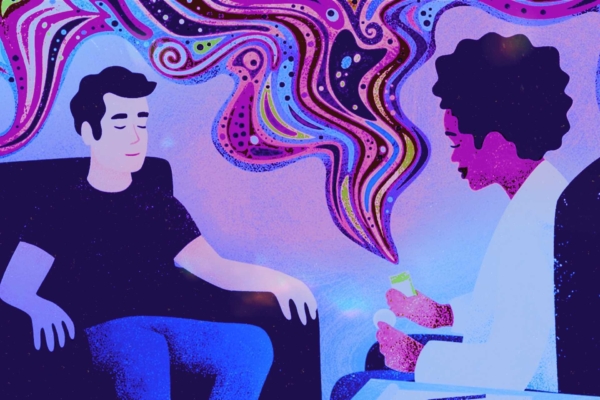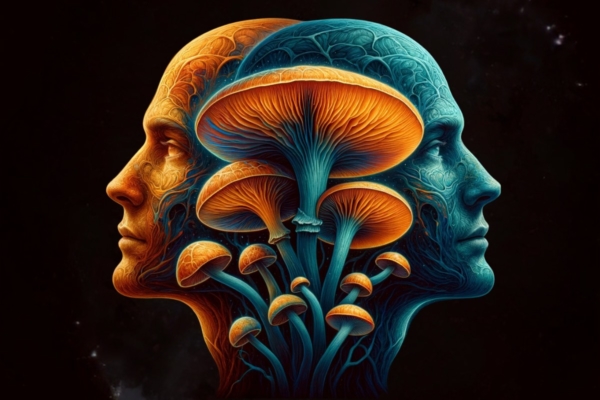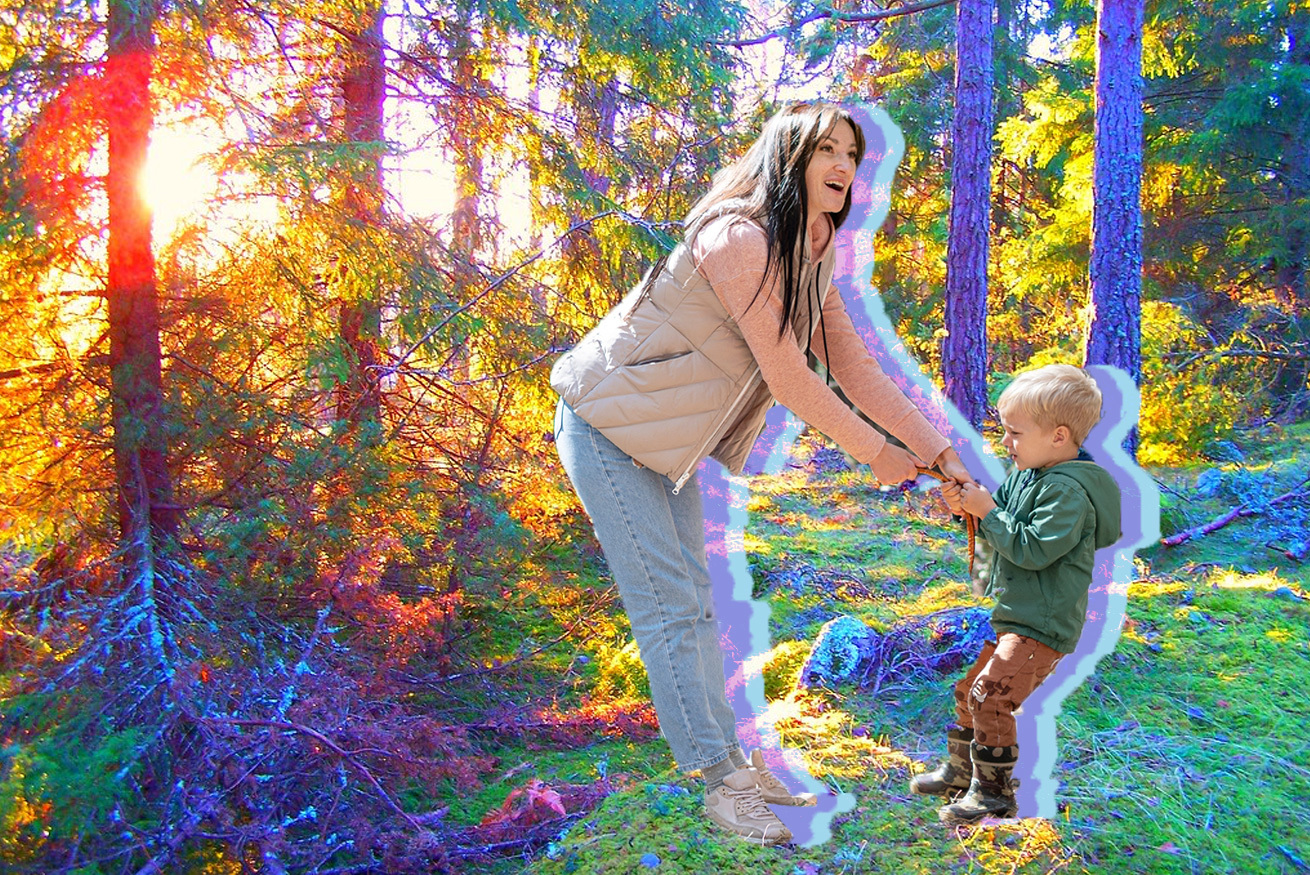
Save the shiitake and bench the white button mushrooms; modern moms are turning to a more colorful alternative to enhance their personal wellness, and their parenting.
Between carpools and cooking and work and holding it all together, how does a mom get her hands on psilocybin? Even more intriguing: how does she decide that psilocybin is the secret ingredient to becoming a super-powered parent?
Some are blaming Michael Pollan and his 2018 cult classic How to Change Your Mind. “Only a science nerd could have led me to the darkside,” says Christina Rivera Cogswell in her Huffpost Personal piece, where she credits microdosing with helping her “look deeply into the eyes of [her] own extinction.” With gut-punching guilt for the world she’s leaving her children –- one irrevocably doomed by drought, overpopulation, wildfires, pandemics, greed, and global warming –– Cogswell pursued microdosing to induce a more positive and grounded outlook on modern times.
But is there anything really dark about a little Psilocybe cyanescens alongside a morning coffee? The hivemind is now shifting toward a long-awaited conclusion: no.
Psychedelic Parenting is Trending
Though Cogswell’s story may seem like a shocking overshare to the uninitiated, she is hardly alone. With the decriminalization of mushrooms finally gaining traction, “Plant Parenthood” or “Psychedelic Parenting” is becoming a more accepted and chronicled practice.
Jake, a Western New York physical therapist and fellow psychedelic parent, echoes an epiphany for Psychedelic Spotlight. “Intergenerational trauma can feel impossible to defeat. Microdosing has not only improved my outlook on my own past but has helped me feel more optimistic about my children’s futures.”
Parents who microdose assert that small amounts of psychedelics –– not enough to trip but enough to, theoretically, alter the mind –- help them deal with the depression and anxiety that come with raising a family. Microdosing may also help mothers connect deeper with their children and approach parenting from a more sympathetic lens.
One Oakland mother, Natalie, even credits microdosing psilocybin with saving her life. In an interview for Insider, Natalie explains that she turned to microdosing psychedelic mushrooms after postpartum intensified her depression.
“I had a lot of rage where I wanted to hurt my baby. Sometimes she wouldn’t stop crying, and I just had so much anger inside of me that I was afraid for her, which caused me to want to kill myself because I was afraid that I was going to hurt my kid,” she revealed.
Her new morning routine includes a 100 mg magic mushroom pill from a dispensary in Oakland, meditation, and gently waking up her daughter.
Since October, Natalie has microdosed every other day for a month, followed by a two-month break — a practice she credits with transforming her. With the support of psilocybin, she can take on motherhood with a sense of calm and a grounded presence.
Three other mothers who microdose corroborated her point, telling Insider that small amounts of psilocybin have helped with postpartum struggles and parenting at large.
An escalating body of research proposes that psilocybin has benefits for depression, anxiety, and trauma. Pace and priorities famously change under the influence of psilocybin. Take a heroic dose, and you may experience an altered sense of reality and have a mystical awakening; microdose and the changes in perception will be much smaller but still substantial.
The most desirable changes in perception for microdosing moms? Eradicated mental fog and enhanced senses of calm and creativity.
Too Good to Be True?
These mothers aren’t stretching the truth either. Science has a solid answer for why psilocybin, even in small amounts, has this effect on people: psychedelics work on the part of the brain known as the parahippocampal retrosplenial cortical network, which is believed to have a hand in controlling our sense of self, or ego.
Michael D. McGee, the chief medical officer at The Haven at Pismo, an addiction treatment center, puts it in pedestrian terms for Allure, “When you take psychedelics, you loosen up and reduce the egoic experiences of identity and self, and it allows people to feel more connected, not only to themselves but to people and to the environment.”
When most think of mushrooms, they think of hippies or experimental college students searching for the answers to the universe, but the effects psilocybin has on parenting may be the most profound of all.
In another Insider article, a mother named Nina, whose last name was withheld to protect her identity, shared that microdosing helped her break the harmful cycle of transgenerational trauma. “I realized how much I was reliving my childhood trauma through my own child,” she said, “it was affecting my mothering skills. I wanted the cycle of trauma to end with me.”
Parenting has long been the most important job on the planet. Now, with existential uncertainties abounding and the end of the world a seemingly in-reach and terrifying reality, it’s more complicated than ever. Any method that works to maintain optimism and break bad thought cycles is a welcome antidote to the aberrations of modern parenting –- even if it’s not completely legal.
Looking Ahead
Even though clinical trials of MDMA and ketamine are proliferating throughout the research community and a number of states have now either legalized or decriminalized psilocybin, it will probably be years before usage of those drugs in recreational settings comes with standardized dosages or certifiable knowledge of how parents can achieve certain benefits of psilocybin. But for those parents who have already figured out how to safely and blissfully self-administer shrooms –– experience is the only proof that matters.
